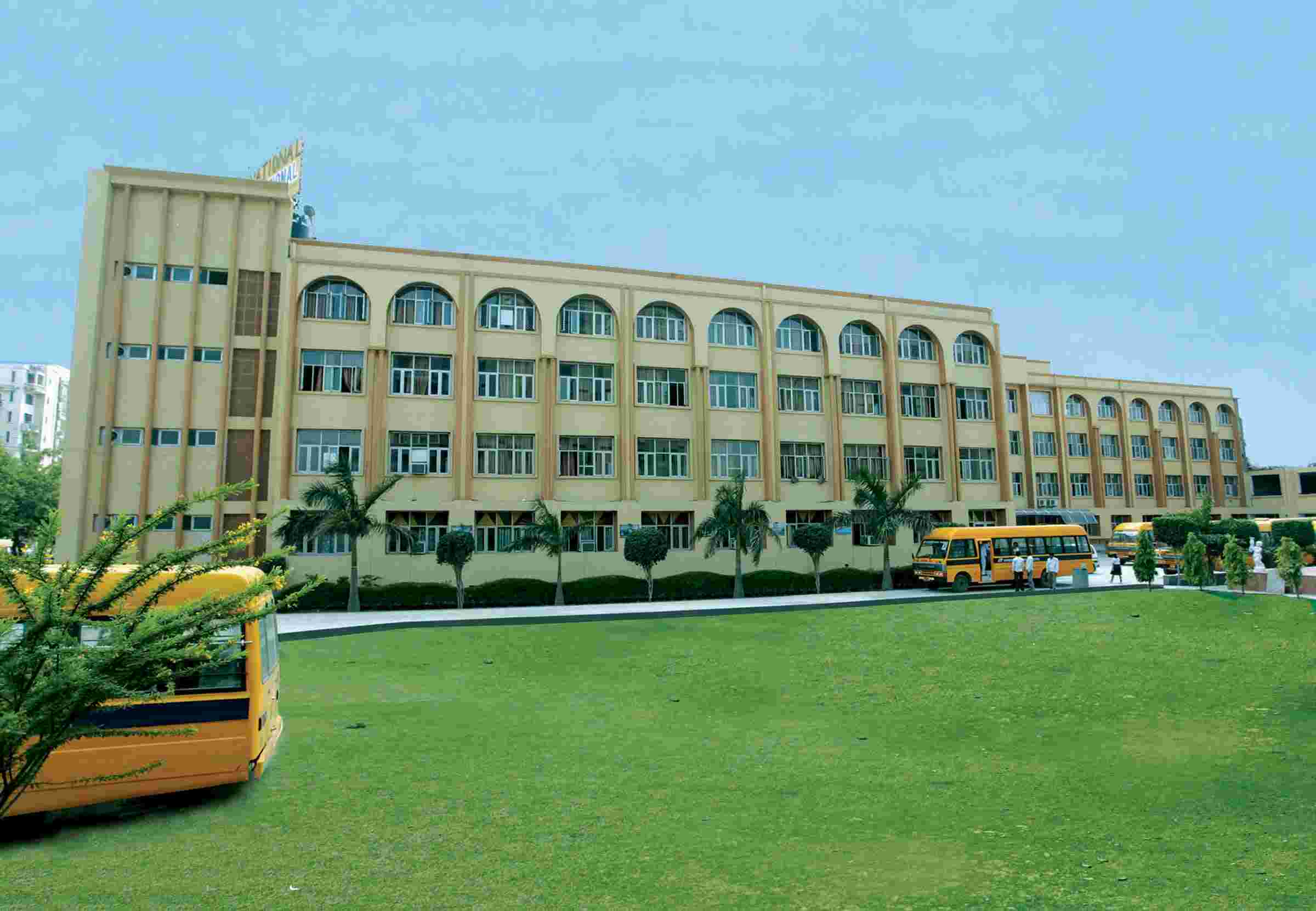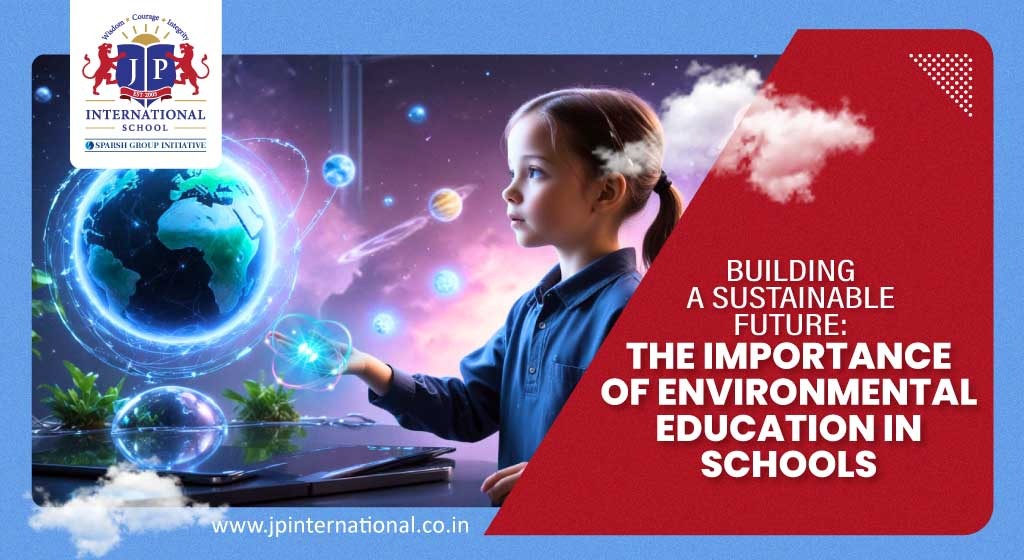

T:+91 7669-933-404
Email: [email protected]
Plot 3A, Sector Omega 1, Near Pari Chowk, Greater Noida, GB Nagar, Pin Code 201308


T:+91 7669-933-404
Email: [email protected]
Plot 3A, Sector Omega 1, Near Pari Chowk, Greater Noida, GB Nagar, Pin Code 201308

The global population's growing concern with environmental issues underscores the importance of promoting sustainable development through education. The learning environment contains both the anchors of academic, social and ethical responsibilities. One of these anchors is the provision of environmental education, defined as a collection of environmental knowledge, skills and beliefs that empower future generations to address environmental issues. Introducing environmental education into school curricula may help inculcate the notion of educating responsible and qualified citizens for the protection of the planet.

Environmental education, also known as EE, is an organised process that aims to educate everyone about the natural environment and its significance. This type of learning not only effectively imparts information from books, but also allows students to apply it in real-world situations, thereby enhancing their personal growth. Most importantly, it instils in them the principles of sustainability. Their core subjects encompass topics such as climate change, conservation, pollution, renewable energy, the impact of human activity on the environment and strategies for mitigating these impacts.
Developing Critical Thinking and Problem-Solving Skills: One of the main advantages of implementing EE in schools is that it may enhance the analytical abilities of the learners. For instance, real-world issues like tree felling and climate change require children to use reasoning, analyse information, generate new knowledge and ultimately develop solutions. It helps to develop skills for problem-solving issues within the environment and a given context in life.
Building Awareness and Responsibility: When students are exposed to what is happening to their environment, they understand where they belong in the greater environment system. Thus, when the child understands what happens to the planet as a result of his actions, the child becomes responsible and learns to live sustainably. Examples of this principle can be seen in programmes for recycling, water and energy conservation in schools.
Preparing Students for Green Careers: Transitioning to sustainable development objectives changes the nature of the employment in industry towards environmental science and sustainable activities. Containing environmental education into curricula development, schools tailor their students to green technology, sustainable living, environmental policies and ecological sciences. Besides creating employment, they are part of societal attempts to minimise negative environmental impact.
Successful integration of environmental education requires a multi-faceted approach: Hands-on Activities: Lessons that extend beyond the classroom are essential. For instance, field trips to nature reserves, participation in local clean-up projects, activities in school gardens provide students with the opportunity to put theory into practice. As an example, these activities amount to a teacher holding a biology class on ecosystems in nature.
Interdisciplinary Learning: Environmental education need not be confined to science classes alone. Teachers can incorporate ecological themes across various subjects, such as discussing the environmental impacts of historical events in social studies or calculating carbon footprints in maths lessons. This approach helps students see the relevance of sustainability across different fields of study.
Involvement in Sustainability Initiatives: Schools can lead by example by adopting sustainability practices. Initiatives such as installing solar panels, reducing plastic use, and maintaining composting programmes signal a committment to the environment that students can observe and participate in. These practices can become lessons that reinforce theories learned in the classroom.
Essential implementation of environmental education contributes to individual and society’s eventual positive impact. Consumers, who were once students trained on the importance of sustainability, become adults who make conscious efforts to embrace environmentally friendly measures for a sustainable future impacting society. Taken cumulatively over time this can produce large positive shifts from advocacy for environmental policies to conservation consciousness of the society.
Furthermore, environmental education creates an ethos of belonging or responsible relationship, regarding the environment. If students establish themselves with nature, they will preserve it. Such a change of mindset is essential, given the increasing global problems in areas of climate and loss of biological diversity. Building up an appreciation for the environment can motivate the coming generation of leaders to embrace green in their daily and especially corporate life.
In the current global turmoil involving environmental concerns, schools bear the responsibility of training future generations for sustainable living. That is why, the idea of integrating environmental education into the context of school programmes will allow educators to equip students with the ability to be responsible citizens who are compassionate about the environment. This has been demonstrated by JP International School by embracing sustainability within its learning topics and organisational ethos. Walking a sustainable path starts in school, in the educational setup of an institution like JP International School, preparing today’s learners for tomorrow’s world.
It teaches critical thinking, fosters responsibility and prepares students for future green careers. It builds responsible compassionate leaders of tomorrow, who care for the planet.
- JP International School29 March 2025
Technology allows students' everyday journey, be it in academics or outside of academics, to be t...
22 March 2025
STEM education prepares students for healthcare careers by combining biology, chemistry and physi...
15 March 2025
By embracing innovative EdTech solutions while preserving valuable aspects of traditional educati...
8 March 2025
This journey becomes more enriched when parents too take an active lead in their children’s aca...
28 February 2025
These are essential 21st century skills which students must be trained in to succeed in a world w...
 28 November 2024
28 November 2024
.jpg) 27 November 2024
27 November 2024
 8 December 2022
8 December 2022
